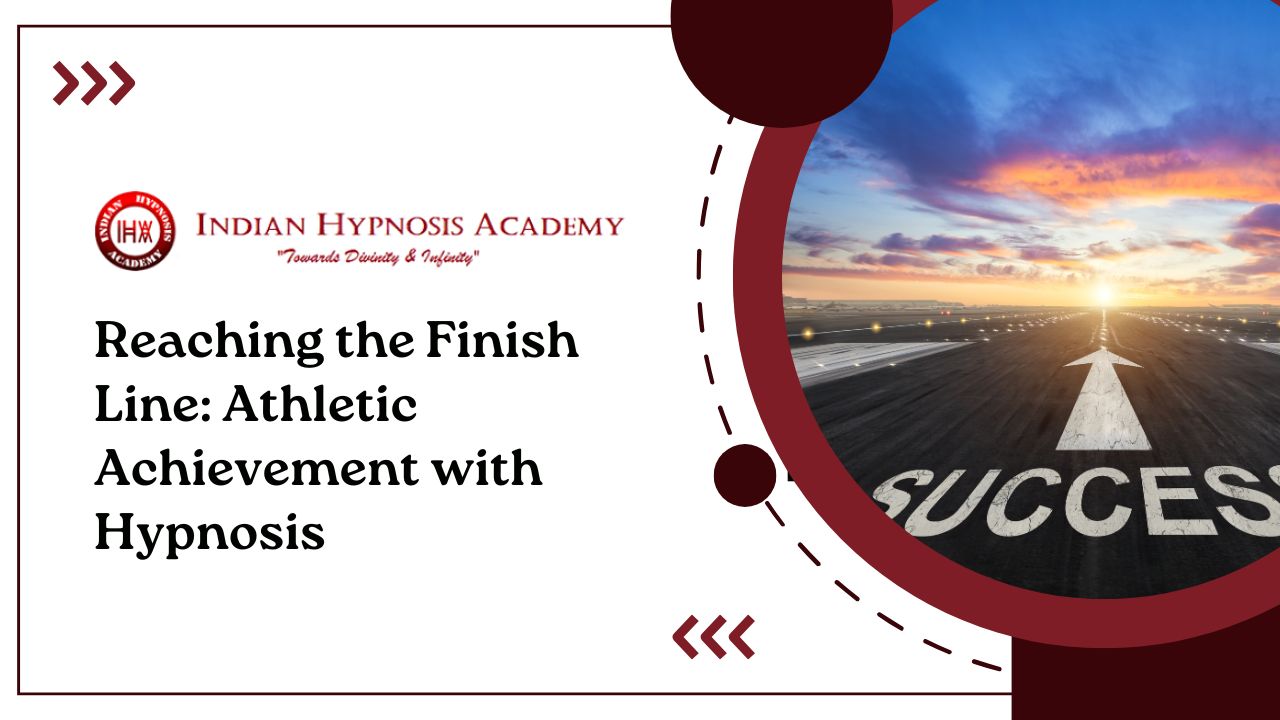Introduction to Hypnosis and its Benefits for Athletes
Imagine standing at the starting line of a race, heart pounding and adrenaline pumping through your veins. You’ve trained for this moment, but as you prepare to take off, doubt creeps in. Will you achieve your goal? What if something goes wrong?
Athletes face these mental hurdles every day. The good news is that there’s a powerful tool that can help them overcome these challenges: hypnosis. Often misunderstood or dismissed as mere entertainment, hypnosis has profound applications in sports performance.
This blog explores how harnessing the power of the mind can lead athletes to reach new heights. From breaking through mental barriers to enhancing focus and concentration, discover how hypnosis can be an essential part of your training regime and overall athletic success.
The Power of the Mind: How Hypnosis Can Improve Athletic Performance
The mind is a powerful tool. For athletes, harnessing that power can lead to remarkable results. Hypnosis serves as a gateway to tapping into this potential.
When under hypnosis, an athlete enters a focused state of awareness. This heightened concentration allows for deeper mental engagement in training and competition. Athletes can visualize success, reinforcing their performance goals and strategies.
Additionally, hypnosis helps manage anxiety and stress levels. By calming racing thoughts, athletes find clarity and focus when it matters most—during pivotal moments in competitions.
Furthermore, this technique fosters positive self-talk. Replacing negative beliefs with affirmations can boost confidence significantly.
Incorporating hypnosis into regular training routines can provide lasting benefits that extend beyond the field or court. It opens doors to new possibilities through enhanced mental resilience and focus.
Overcoming Mental Barriers with Hypnosis
Mental barriers can be formidable obstacles for athletes. They often arise from self-doubt, fear of failure, or past negative experiences. These mental blocks can hinder performance and reduce confidence.
Hypnosis offers a pathway to dismantle these barriers. By accessing the subconscious mind, athletes can reshape their thoughts and beliefs about themselves. This process allows for positive affirmations to take root.
During hypnosis sessions, individuals may visualize success in high-pressure situations. This not only builds confidence but also enhances focus during competition. The relaxed state achieved through hypnosis helps clear away distractions and anxiety.
Athletes report feeling more in control after working with a hypnotist. A strengthened mindset leads to improved resilience against stressors that once seemed insurmountable. As they learn to trust their instincts, peak performance becomes more attainable than ever before.
The Role of Visualization in Reaching Athletic Goals
Visualization is a powerful tool that athletes can harness to enhance performance. By creating vivid mental images of success, athletes prepare their minds and bodies for competition. This technique helps in bridging the gap between training and actual performance.
When an athlete visualizes a successful race or perfecting a skill, they engage both the mind and body. The brain often doesn’t differentiate between real experiences and imagined ones. Thus, these mental rehearsals build confidence and reduce anxiety.
Moreover, visualization serves as a motivational boost. Imagining crossing the finish line first or achieving personal bests ignites passion and determination within an athlete. It transforms aspirations into tangible goals.
Incorporating regular visualization sessions into practice routines can lead to remarkable results. With consistent effort, this approach nurtures focus while cultivating resilience against challenges faced during competitions.
Case Studies: Successful Athletes Who Utilized Hypnosis
Many elite athletes have turned to hypnosis as a tool for performance enhancement. One notable example is golfer Jack Nicklaus. He utilized visualization techniques through hypnosis to sharpen his focus and improve his game. This mental edge helped him secure numerous championships.
Basketball legend Kobe Bryant also embraced the power of the mind. His dedication to mental conditioning included hypnotic practices that allowed him to visualize success and overcome challenges on the court.
In athletics, hypnotherapy has been instrumental for sprinter Usain Bolt. He employed it to build confidence, manage stress, and maintain peak motivation during competitions.
These case studies highlight how some of the world’s top athletes harnessed hypnosis not merely as an auxiliary technique but as a fundamental aspect of their training regimen. Their stories inspire countless others looking to break barriers in their own sports journeys.
Incorporating Hypnosis into Training Routines
Incorporating hypnosis into training routines can transform an athlete’s approach to performance. It’s about enhancing focus and mental resilience, not just physical strength.
Start by scheduling regular sessions with a qualified hypnotist. These sessions can help athletes develop a mindset geared toward success.
Athletes should also practice self-hypnosis techniques at home. Simple breathing exercises or guided imagery can embed positive affirmations deep within the subconscious.
Integrate these practices into pre-training rituals. For example, using visualization before workouts helps in mentally preparing for challenges ahead.
Keep track of progress through journaling. Documenting experiences will highlight improvements in both mental clarity and overall performance.
Remember, consistency is key. Just as muscles need training, so does the mind—make hypnosis a staple in your routine for lasting benefits on game day.
Potential Risks and Precautions to Consider
While hypnosis holds significant potential for enhancing athletic performance, it’s important to approach it with caution. Not everyone responds to hypnosis in the same way. Some may find it unhelpful or even unsettling.
Athletes should seek qualified practitioners who specialize in sports hypnosis. Working with someone experienced ensures that techniques used are safe and effective. Avoiding self-hypnosis without proper guidance is wise, as unintended suggestions can arise.
It’s also crucial to address any pre-existing mental health conditions before starting hypnosis sessions. Consulting a healthcare professional helps ensure that this method complements overall well-being.
Maintaining realistic expectations is key. Hypnosis isn’t a magic cure-all; commitment and practice remain essential components of achieving athletic goals. Always prioritize personal comfort levels throughout the process to foster a positive experience.
Conclusion and Next Steps for Athletes Interested in Trying Hypnosis
For athletes interested in exploring hypnosis, the journey begins with an open mind. It’s essential to approach this tool as a complementary method alongside traditional training techniques. Start by seeking out qualified professionals who specialize in sports hypnosis. This will ensure you receive guidance tailored to your specific needs.
Consider incorporating visualization exercises into your daily routine. Picture yourself achieving your goals, whether it’s breaking a personal record or mastering a challenging skill. This mental practice can be powerful when paired with actual physical training.
Experimenting with self-hypnosis techniques may also be beneficial. Simple practices like deep breathing and focused concentration can help improve focus and reduce anxiety before competitions.
As you navigate this process, listen to your body and mind’s responses. Not every method works for everyone; finding what resonates best with you is key.
The potential benefits of utilizing hypnosis are vast, from increased confidence to enhanced performance under pressure. With dedication and the right support, reaching that finish line becomes more attainable than ever before.



